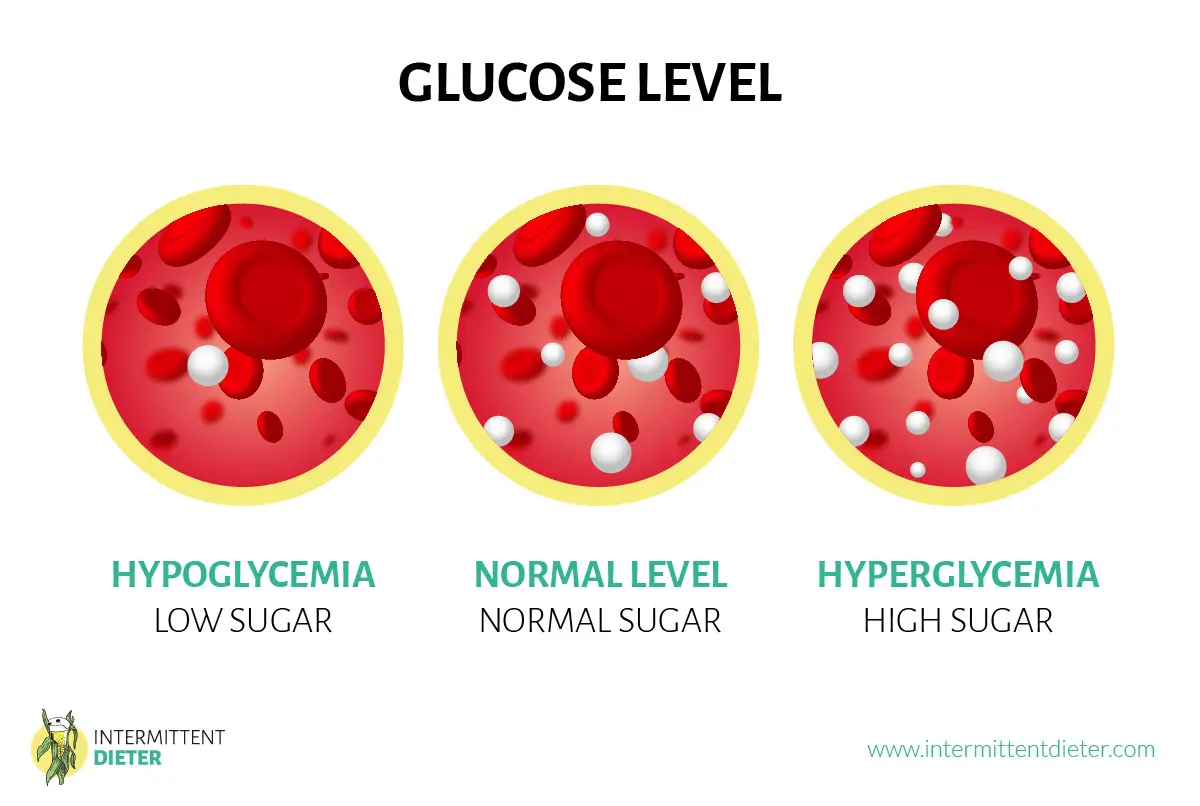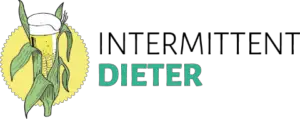When talking about my fasting habits on concern always come up: if you don’t eat you’ll get hypoglycemia and fall down. But can a non-diabetic really collapse when fasting? Is there such a thing as non-diabetic hypoglycemia?
Fasting causes low blood sugar, which, in medical terms, is referred to as hypoglycemia. It happens when the body turns to ketones for fuel instead of glucose, but it’s not the same as diabetic hypoglycemia and it is not a danger in your health, except in rare cases or pre-existing conditions.
Of course, there’s more to it than just this: why do you have low blood sugar when fasting? What exactly is hypoglycemia and non-diabetic hypoglycemia?
What happens to your blood sugar when you fast
Let’s get rid of the elephant in the room: fasting causes hypoglycemia. As in low blood sugar. When you fast, your body needs to transition from using glucose for energy to using ketones.
Your cells have to adapt to running on ketones for energy and not glucose. This state is called ketosis and it can come along with what is commonly called keto flu.
Keto flu includes lightheadedness and headaches. These are two known symptoms of hypoglycemia. Which is logical, since hypoglycemia = low blood sugar. This state will have an impact on your brain first since it runs entirely on glucose, which will be the cause of these symptoms.
But this type of hypoglycemia, if you’re not diabetic, is not a threat to your health. This keto flu is common, but it can be pretty heavy if you’re not used to fasting.
If you’re experiencing these symptoms and you’re not sure it’s caused by the fast, simply try and eat some proteins. This should reduce the effect of keto flu drastically. But eating is actually a temporary fix to this problem.
What you could do to prevent this state is simply to gradually adapt your body to ketosis. Instead of doing, for example, a 24 hour fast, start with 16, or 12. The idea is to get your body used to fast.
Lightheadedness can also come from low electrolytes, meaning low potassium and sodium levels. As your sodium levels decrease, the body tends to lower blood volume, which can add to the low blood sugar.
I myself experienced lightheadedness on a 5 day fast. I almost immediately thought I needed salt. So, I drank a whole cup of vegetable broth and I felt soooo much better. I could have drunk more water to cope with that, it would have taken a bit more time, but it would have work too.
Keto flu can be hard, as I said earlier if your body is not used to fasting. A friend of mine who never experimented with fasting tried a 5 day fast and stopped after 3 days.
She was not prepared to fast physically and mentally, her body wasn’t used to it. The third day, she felt so weak she couldn’t function properly at work, lifting small things was a hustle.
She was convinced she was experimenting with severe hypoglycemia and that her health was at risk! But she was not. She was most likely having a really heavy case of keto flu.
So keto flu along with usual cravings for food (she had been hungry for the whole three days), unprepared body and an unprepared fast (no 2-3 light meal days before) is what caused this dreaded state.
What is a non-diabetic hypoglycemia
Now that we’re clear on the type of hypoglycemia we face when fasting, let’s talk about diabetic hypoglycemia and the rare cases of non-diabetic hypoglycemia.
Hypoglycemia happens to diabetics when sugar levels in the blood go below a certain number of milligrams per decilitre. This amount may vary from person to person, the average value is around 70 mg/dl.
It’s usually caused by mismatched medicine, food, drinks and exercise, which can result in really low blood sugar. Hypoglycemia is a severe condition, it’s not just a case of fainting for a few minutes.
Hypoglycemia makes you sweaty, tremulous and if you’re reaching very low blood sugar, you could suffer from loss of consciousness, seizures, and death.
Now non-diabetic hypoglycemia is a known condition, even though it is quite rare. It can occur if your body cannot stabilize your blood levels. This can happen if your pancreas produces too much insulin.
There are two types of non-diabetic hypoglycemia:
Reactive hypoglycemia
Reactive hypoglycemia happens typically a few hours after a heavy meal. What happens is that your body might produce too much insulin, lowering your blood sugar.
Reactive hypoglycemia doesn’t happen overnight, it’s a condition that can mean that you’re at risk of developing diabetes.
Non-reactive hypoglycemia
Rarer, non-reactive hypoglycemia is not specifically related to your diet. It could come from:
- Too much alcohol that could stop your liver from producing glucose, therefore causing low blood sugar
- Specific side-effects of certain medications, especially those used for kidney failure
- Any disorder that affects the liver, kidneys or heart
- Severe eating disorders, like anorexia
- Pregnancy
I mentioned anorexia, which could involve fasting, but this is an eating disorder, not a diet. We’re talking about a condition in which people have less than 85% of expected weight or a BMI under 17.5.
In the case of anorexia, fasting is not the cause of the problem or the sole aspect of their eating habits.
What to do if you feel lightheaded or sick when fasting
When fasting regularly, those symptoms will most likely disappear on intermittent fasting, but they can sometimes be experiences on prolonged fast.
I’m not a doctor and I do not know you or if you already suffer from any condition, so first off, if you feel really unwell when fasting, having no energy, feeling headaches and strong discomfort: eat.
Fasting is not a contest, there’s no need to put yourself in a terrible state only to prove a point or thinking no arm will get to you from not eating, you read it on that stupid intermittent dieter blog!
It’s what I said to my friends when they want to experiment with it. There are some discomforts when fasting, some stomachache and hunger, of course, tiredness and lack of energy on some days.
But when those symptoms really rise up, just eat.
As I said earlier, adapt gradually to it. If you cut your fast short because of keto flu, simply try and fast for shorter periods of time. Even if it’s a few hours and it seems really stupid to do it for such a small period of time.
You need to let your body adapt to this new habit, not rush into it.
If keto flu is tolerable though, you could try to:
- Drink more water. You drink 3 liters a day? Try 4 or 5. Hydrating is a huge component of fasting and it’s a go-to when feeling down.
- Drink green tea or coffee (black of course), might help you feel full or more energized
- Get electrolytes, mainly sodium, potassium, magnesium. Simple salted water could do wonders, trust me
- Have a vegetable broth. Okay, you will be breaking the water-only fast. But the sodium you’ll get from the broth can really help you get through the feeling of unwellness. Some people also recommend chicken broth, but I never tried it on a fast and I’m afraid it would actually break it.
Those are all advice I tried and followed in my experiments, there might be other things you can do. I also mix coconut oil in my coffee for ketones for example, but I still have to really look into this to make sure it’s not actually breaking my fast.
Related questions
Can you fast if you have diabetes? That is a huge topic, but according to doctor Jason Fung, author of the best-selling book The Obesity Code, you can fast if you have diabetes. Moreover, it can actually help you cure diabetes.

